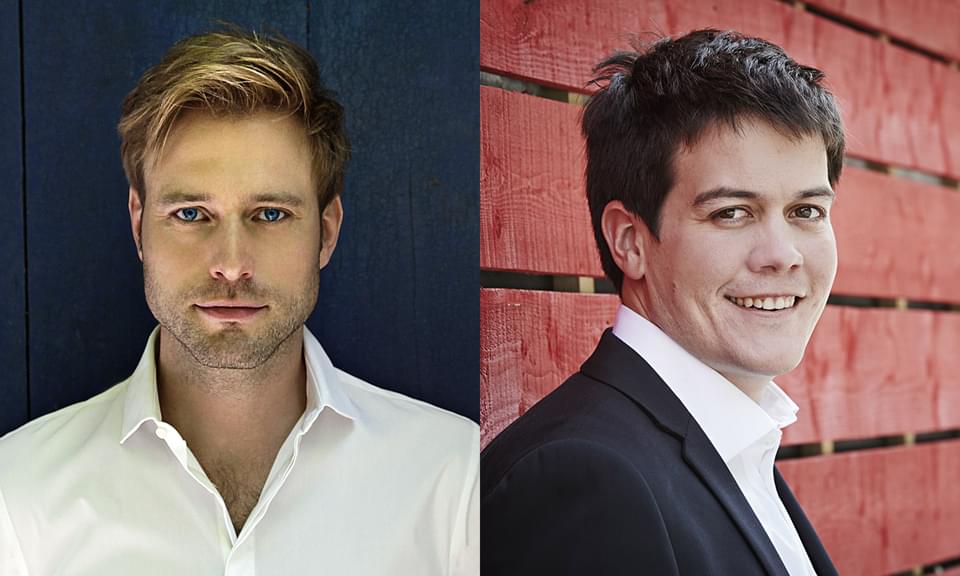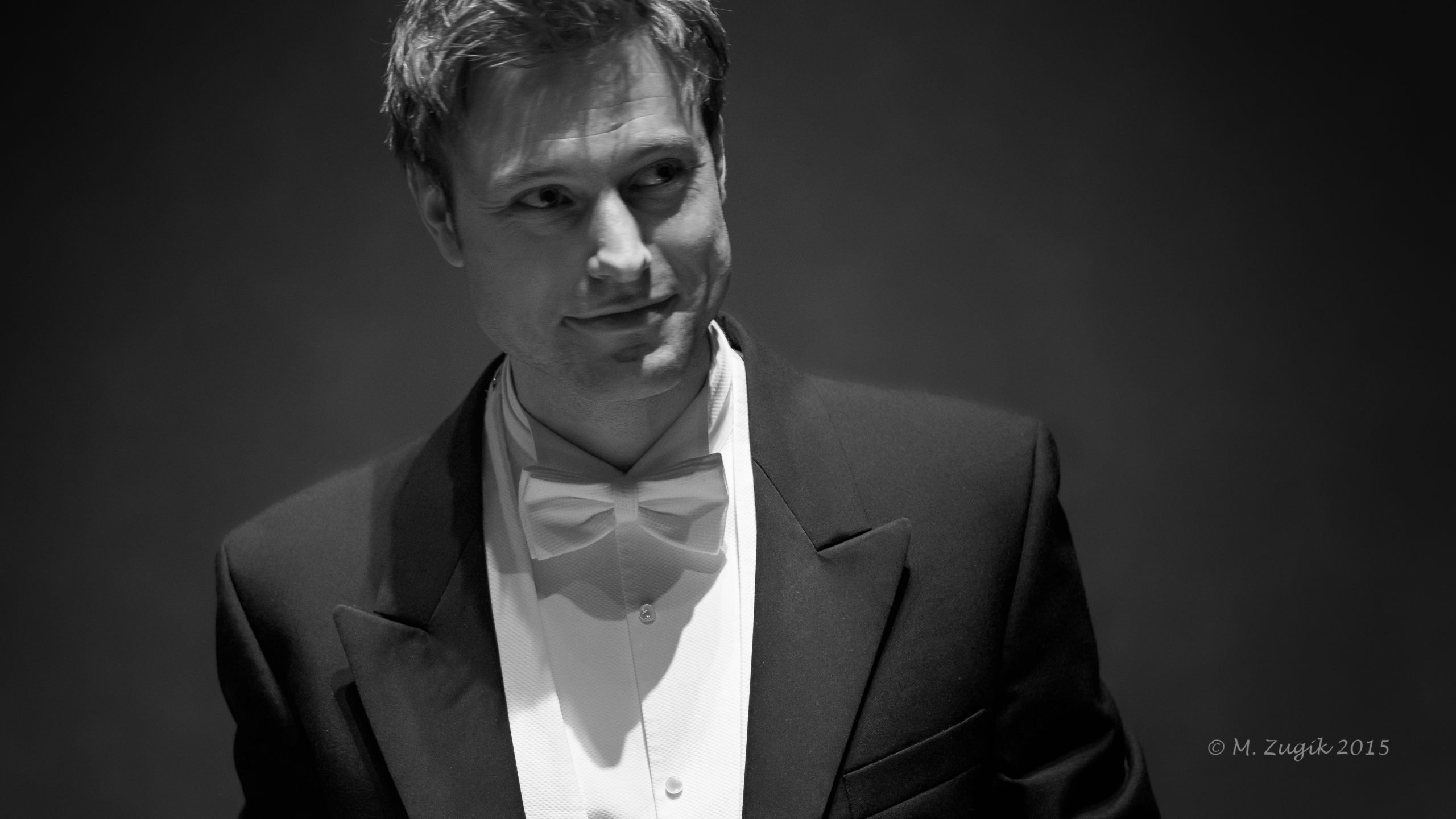
Spring evening light still tinted the air as audience members filtered into Herbst Theatre on Wednesday, May 10, for baritone Benjamin Appl’s San Francisco debut recital. Two hours and 26 songs later, the singer and his peerless accompanist, James Baillieu, had ushered listeners into the wonders, terrors, mysteries, and spiritual depths of the night. The darkness out on Van Ness Avenue had an enveloping, almost tactile presence as patrons, their senses heightened, left the hall and went their separate ways.
Aptly titled “Nocturne,” the San Francisco Performances evening gathered lieder by Schubert, Brahms, Tchaikovsky, Robert Schumann, Richard Strauss, William Bolcom, and others into programmatic musical chapters. Taking turns with a microphone, the soloist and pianist briefly introduced the “movements,” as it were, of “Evening,” “Romance,” “Moon,” “Stars,” “Nightmares,” “Phantasies,” “Insomnia,” “Dreams,” “Darkest Hours,” and finally the release of “Morning.”
In both its conception and its artful, alluring execution by these two superb artists, the recital began strongly and only grew more engrossing as it explored, as Appl put it, night’s “space of ambivalent experiences.”
Dressed in a trimly tailored black velvet jacket with dove gray lapels and a crisp bow tie, the tall, slender singer, made taller still by a buoyant shock of straw-blond hair, made an immediate impact. But it didn’t take long for Appl to establish, with his supple lyric voice and penetrating interpretations, that looks were more or less beside the point. Singing for the most part with his hands lightly clasped, he engaged in none of the studied gestures or mugging that can oversell and undermine a lieder program.

Opening with Schubert’s “Nocturne” (to use, here and elsewhere, the English translations of titles), Appl turned this splendid song into a gripping mini-narrative, climaxed by a dramatic ritard on an old man’s silent death. He gave the same composer’s “To be sung on the water” a lithe, pensive character that captured the shimmering imagery of the text with a seeming physical liquidity.
Tchaikovsky’s “At the ball” took on a gently pulsing, waltz-time air, while Strauss’s “Serenade” capered along in a playful, flirty manner. And so it went, with Appl blending technique, textual acuity, and artistic discretion to varied and telling effect. Reynaldo Hahn’s “Exquisite hour,” which might have lapsed into preciousness, was all the more moving for the singer’s restrained vibrato and poignant reading of the ardent direct address: “O my beloved.”
Singing as lucidly in English as he did in German, French, Russian, and Norwegian (Edvard Grieg’s sublime-to-ecstatic “A dream”), Appl made a delectably caustic feast of Bolcom’s Sondheim-esque “Song of Black Max” and full-throated pleas for abiding joys in Ivor Gurney’s “Sleep.”
Throughout, when the moment was right, the singer found a weight and urgency in what is primarily a lighter voice. Dynamic contrasts, from stormy fortissimos to whispery pianissimos, etched one dramatic moment after another.
A discovery came late in the program, with Appl’s verbal and musical advocacy for the Czech poet and composer Ilse Weber (1903–1944), who was sent by the Nazis to the Theresienstadt prison camp, where she organized a children’s hospital before being transferred to Auschwitz and dying in the gas chamber. Appl sang two of her songs, one about life in the camp and the other a strophic lullaby, with spare, disarming simplicity.
Whether he was rippling out Schubert arpeggios or delivering the keyboard hammer blows in contemporary Scottish composer James MacMillan’s stark “The Children,” inspired by the Spanish Civil War, Baillieu was an ideal partner. He brought a thrilling thunder to Schubert’s “The Erlking” and a surpassing delicacy to the open intervals of Arnold Schoenberg’s tender “Why did you wake up.”
One small reservation cropped up from time to time, with tempos that edged from spaciousness into near stasis. The closing number, Strauss’s “Tomorrow!” was one example.
That slight misgiving aside, “Nocturne” turned darkness into something luminous. Here’s hoping that Appl’s wish to return to San Francisco comes true.

